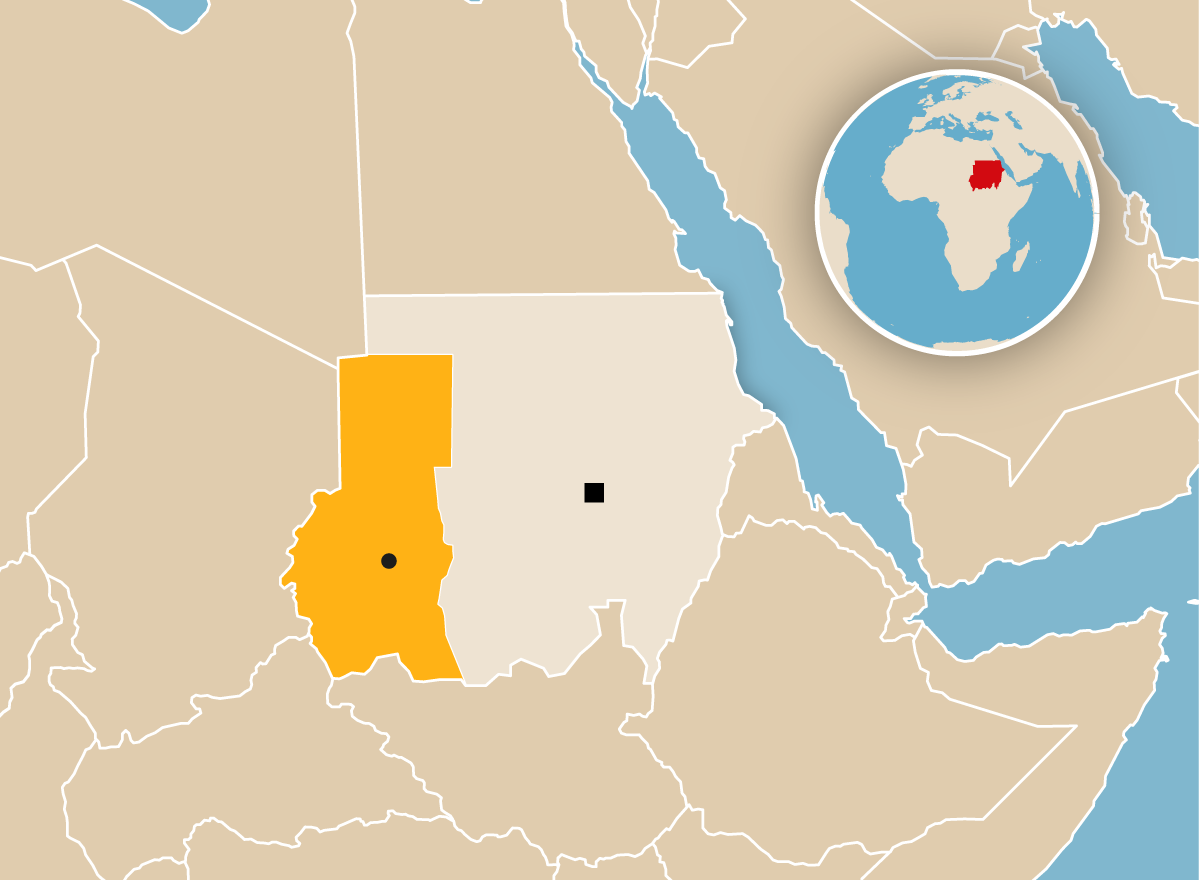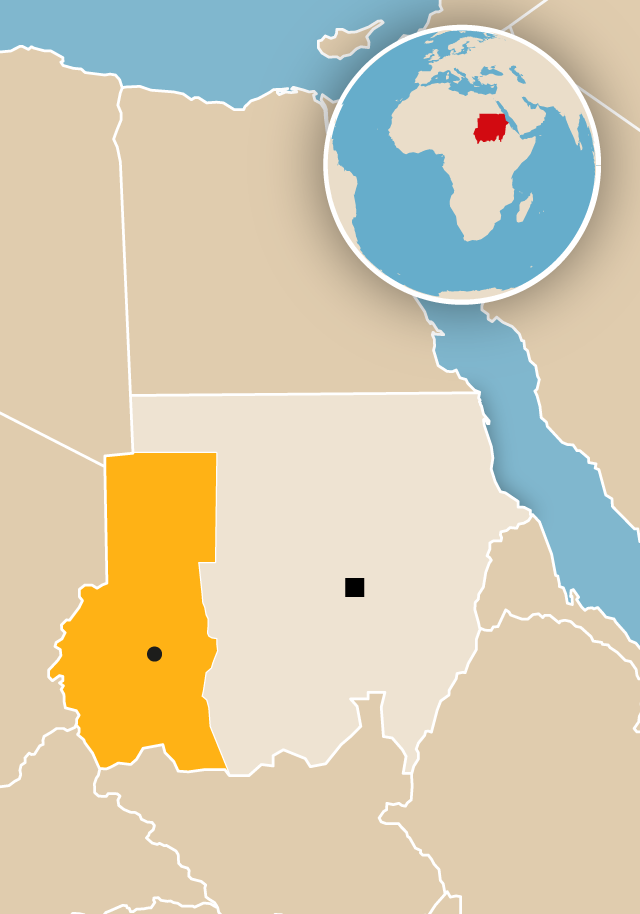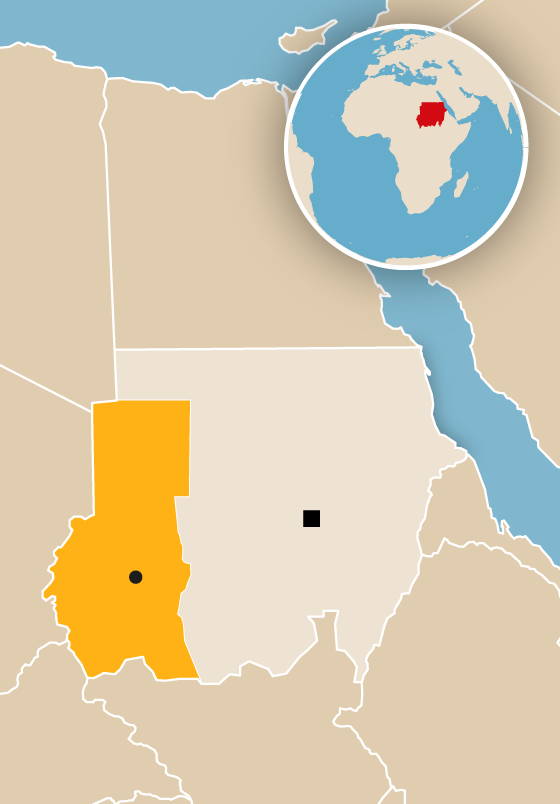Sudan's civil war enters a new phase after the army recaptures the capital.
With the battle for Khartoum over, attention is turning to Darfur, where the future of the country is at stake, with the largest humanitarian crisis in the world.


CairoFor the first time in almost two years of civil war, a khaki and brown military helicopter landed at the devastated airport in Khartoum, the capital of Sudan, on Wednesday. From inside, the country's president and head of the army, Abdel Fattah al-Burhan, emerged. After descending the three steps of the aircraft, he took two steps and knelt on the runway for a few seconds, while a general behind him raised his right fist with his index finger pointing to the sky.
Moments later, al-Burhan declared that regular troops had taken full control of Khartoum, which had been occupied by the Rapid Support Forces (RSF), a paramilitary organization, since the beginning of the conflict in mid-April 2023. The general made the announcement at the presidential palace, located in the heart of the capital, which had been recovered only five days earlier, in the most symbolic victory achieved so far by the Armed Forces, which represents the worst setback for the paramilitaries.
The center of Khartoum holds special symbolism because it was where it all began. The presidential palace was also stormed by paramilitaries in the turbulent early stages of the war, attempting to capture or kill Al Burhan, who fled. Since then, the military government has relocated to Port Sudan on the Red Sea, which has become a sort of provisional capital. Recapturing Khartoum reinforces the country's claim to be recognized as the sole legitimate power.
The battle for Khartoum began last September, when the army launched a surprise offensive and advanced on several key points in the capital. For months, the conflict in the area had been a stalemate, with both sides digging in and resorting to artillery and drone strikes to wear down the enemy. Advances accelerated in late January, when the military seized the largest town south of Khartoum. And the final, ferocious assault began two weeks ago.
Until early summer, the army was on the defensive. in the face of the advance of the paramilitaries, which, with extensive external support, particularly from the United Arab Emirates, was cornering the military in the east and north of the country. However, the army has since taken the initiative, having rearmed itself—partly thanks to Turkey, Iran, Russia, and Qatar—and significantly expanded its forces through recruitment campaigns and the integration of powerful militias.
With Khartoum's fate already decided, attention on the front lines is shifting to the western regions of Kordofan and, above all, Darfur. The capital of North Darfur, Al Fashir, is the only one of the five states into which Darfur is divided that the army controls, but it has been under siege for a year. A crucial battle for the future of Sudan is being waged there: if the paramilitaries win, the country could break apart; if the army and allied armed groups win, the road to reunification could begin.
Humanitarian crisis
The Khartoum that the army has recaptured, however, is a devastated city. Basic infrastructure is devastated, and some areas under paramilitary control have lived in conditions of starvation. Sudan's current humanitarian crisis is the world's worst, with thousands of war casualties compounded by conditions incompatible with life in many parts of the country, such as extreme malnutrition and the collapse of the health system, which are driving up mortality.
Although people have begun to return home in recent weeks due to the army's advance in the center of the country, Sudan is also experiencing the largest displacement crisis on the planet. Since the start of the war, more than 8.7 million people, many of them from Khartoum, have fled in search of safer places, and more than three million have gone to neighboring countries, such as Egypt and Chad. Before the war, there were more than 3.8 million internally displaced people from previous conflicts.
This profound humanitarian crisis has also recently been exacerbated by US President Donald Trump's decision to freeze all foreign development aid programs for review. In Sudan, the executive order has paralyzed many of the last initiatives still operating in the most war-torn areas, providing basic services such as food and healthcare to millions of people.
The war in Sudan erupted after the alliance between the army and paramilitaries was shattered in April 2023. The country had been mired in severe instability for a year and a half following the coup they carried out together to end a two-year transition. Their aversion to civilian authority, internal reform, and accountability kept them together for a time. But their inability to lay the foundations for power in the face of broad popular opposition eventually made their relationship unsustainable.



